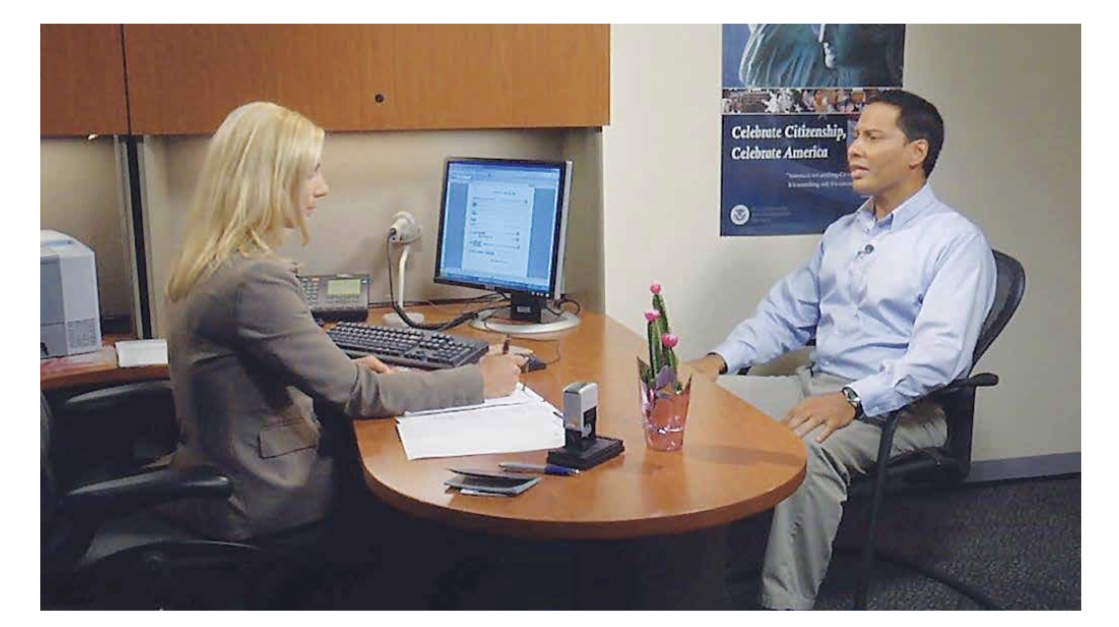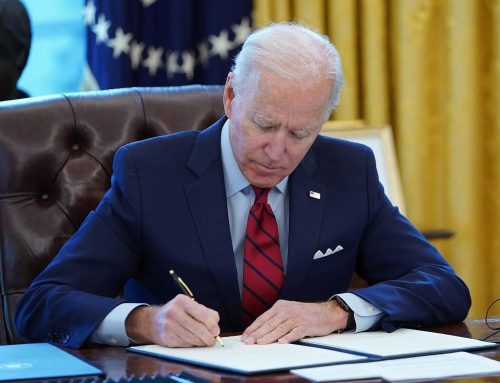How to Prepare for Asylum Interview
It’s important that you thoroughly prepare for an asylum interview. There are various traps which could lead to your asylum application being rejected. Learn some tips about asylum interview questions and answers. Help yourself succeed in your application by studying the list of do’s and don’t’s below. It can help make the difference between having your application accepted or rejected. Here is a list of suggestions and sample asylum interview questions and answers for your consideration.

Review your application and all supporting documentation
When you receive your asylum interview notice, review the asylum application form, declaration and documents you provided. Read your asylum declaration to refresh your memory. If you have a lawyer, you should discuss providing additional documents, evidence, country reports, affidavits, which may help your case. This must be done well in advance of the interview to allow time to prepare any new material. The new documentation can then be added to your case. Each asylum office has specific deadlines by which you can add evidence to your file.
Arrive early and bring your family
- On the day of the asylum interview, arrive 30 minutes early, not earlier, not later.
- All your family members, witnesses and interpreter (if needed) must be present.
Consider having an interpreter but only if needed
If you need an interpreter, hire a professional who has handled asylum interviews before. This is extremely important. The interpreter plays a crucial part in your case. Misinterpreted words can cause rejection or referral of your case to an immigration court. You do not need an interpreter if you can understand and speak English. An interpreter should be used only if needed. If you can speak and understand English, it is always much better to answer the asylum officer’s questions directly. But, again, if needed, you should hire a professional interpreter.
Dress appropriately
Dress business casual or neat casual. Do not dress too formally. Most asylum officers do not wear formal attire. Also take a bottle of water with you and anything you may need. An asylum interview takes several hours and may take the entire day.
How to answer the asylum officer’s questions
Respond to questions directly and firmly. Most of the asylum interview is about your life and experiences. You should know the answers.
Do not guess. If you don’t know the answer to a question, say “I don’t know.” If you don’t remember, say “I don’t remember.” If you are not sure about something preface your answer with “I am not sure if I remember correctly, but….” However, do not overuse such prefaces, because it may seem you are not sure about anything. The interviewer may think you are trying to cover-up inconsistencies. Don’t preface each answer with “I think…” or “As far as I know….”
Answer all questions in full but concisely (briefly). For example, if asked “Do you know who did it?”, and your answer is yes, say directly who did it. Do not just answer “yes”. By asking “Do you know who did it?”, the officer is obviously also asking who did it. However, don’t go on to explain how you know who did it, or why they did it. Let the asylum officer ask the next questions. The best asylum interview consists of quick short questions and answers, back and forth.
Listen carefully to the officer’s question and make sure you understand it. Make sure you fully understand what the officer is trying to find out. Ask the officer to repeat or clarify the question, if necessary. But do not overdo this. If you ask for clarification too many times, you may irritate the officer. It may seem like you are trying to buy time to think of a convenient answer.
Speak slowly and in short sentences. First, this makes your answers clearer and more understandable. Second, if you have an interpreter, do not speak too fast or for too long. If you do, much of what you say will be lost in translation. If you have an interpreter, make sure to discuss this beforehand. You can get the interpreter to give you a sign if you speak too fast or for too long. But even if don’t have an interpreter, using short sentences helps the officer to clearly understand and record your answers.
Do not interrupt the officer during the asylum interview. Allow the officer to finish the question before answering it. Rapid answers and rapid talking do not impress the officer or make you more credible.
Do not answer questions by telling the story of your entire life. Only answer the question asked. For example, frequently officers begin the interview by asking:
– “Why did you apply for asylum?”
This may seem like an open-ended question, but it is not. You must only answer, for example:
– “Because I am afraid/scared or cannot return to my country.”
This will give the officer a chance to ask the next question, e.g.:
– “Why are you afraid?”
Again, do NOT tell stories, just answer the question. So, the correct way to answer this question is:
– “Because if I return, I will be arrested/beaten/killed/tortured,” etc.
Now the officer may ask:
– “Who would do this to you?” or “Why do you think they’d do this to you?”
… and so on. Again, question – answer, question – answer, question – answer…
Throughout the asylum interview, the officer will be typing up the questions and answers. Take this into consideration when answering questions. Speak slowly and in short sentences. Your goal is not to just give an answer to a question and get it over with. You MUST make sure the officer fully understood your answer, and correctly recorded/typed it up. Asylum officers conduct 2-3 interviews per day. Sometimes, the officer deciding your case will not be the officer who interviewed you. So, his or her only source of information is the notes the interviewing officer took. Therefore, making it easier for the officer to take notes is one of your most important tasks during the interview.
Do not feel obliged to fill silence. If the officer is thinking of the next question or typing, just sit quietly and wait for the next question.
Should I remember dates?
You do NOT have to memorize dates. Refreshing your memory before the interview is helpful. But providing exact dates of every single event is not impressive or helpful for your case. If you are not sure about a date, say so. Preface your answer with “I am not sure, but I think it was on …”.
Choose the right words and use simple language
Do not use the word “persecution” in the asylum interview. Forget the word. If you have an interpreter, instruct your interpreter not to use that word. Persecution is a legal conclusion which the officer will determine. If you keep saying I was “persecuted” you risk irritating the officer by providing your interpretation instead of the facts.
Also forget the words “pressure” and “insulted”. For example, “I was pressured”, “insulted”, “they will pressure me.” These are buzz-words indicating that nothing serious happened or will happen to you. Being “pressured” or “insulted” is not a basis for asylum. You can use words like “intimidated”, “threatened”, “targeted”, or describe what happened. That’s better than summarizing it with one word. So, for example, if you were pressured into doing something, don’t say “I was pressured.” Instead, describe how and what they did to you. Of course, there are exceptions and, sometimes, there is no other option than to use such words.
Some officers, unfortunately, ask inadequate questions and expect adequate and firm answers. For example, after hearing you were threatened, an officer may ask – “How many times were you threatened in your country?” This is confusing. First, you may be living under constant threat. You may have been threatened so many times that you had no way of keeping count. Second, what is a “threat”? Some threats can be implied by actions, some are communicated verbally, and some are indirect. So, when answering questions about threats, explain clearly what you considered to be a threat. Better still, describe what happened. Of course, again, there are exceptions, and everything depends on the specific circumstances during your asylum interview. Do not lecture the officer about the definition of the word “threat” or the tone of the officer’s questions. Instead, answer in full and elaborate on what you mean by a threat or what you considered a threat.
Do NOT use legal terms or formal language. For example, do not say: “I was subjected to persecution at the hands of the government authorities to coerce a confession.” Say: “The police arrested me, tied my hands and beat me to make me confess to something I did not do.” Use simple words and speak freely.
Do not refer the officer to a document or your application instead of giving a verbal answer. Only say what you know. For instance, the officer may ask “What type of injuries did you have?”. Do not say: “You can see from the documents I provided” or “as the documents show…”. What the documents say or show is not what the officer is trying to find out. They want to hear the answers from you. You need to answer the question firmly and clearly based on your knowledge and understanding.
Do not explain your answers unless asked
You do not have to explain your answers unless you are asked to. If it is a “yes” or “no” question, the best answer is “yes” or “no”. If the officer wants to know why, s/he will ask “why?” If, however, you feel it is very important to explain, first provide the answer and then explain. In an asylum interview do NOT begin your answer with an explanation.
Make sure the officer receives a complete and clear answer to his or her question. Providing unclear answers lacking in detail is one of the most frequent formal reasons for asylum denial. This is stated as “lack of details on material points”.
Be honest!
Asylum applicants are often caught lying about working without authorization (working illegally). They believe their asylum will be denied if they worked without a work permit. If you worked without authorization, worked for cash or violated your visa status, you MUST disclose it in your application. You should answer those questions at the interview truthfully. The fact that you worked illegally or violated your status will NOT be grounds for asylum denial. But misrepresenting this information in your application or during your interview will damage your credibility. It will also likely lead to the rejection of your asylum application. Each asylum interview begins with a detailed review of your asylum application (Form I-589).
The asylum officer will go through every question in your application and verify your answer. This is your opportunity to correct/update things you may have omitted because a “friend” told you to do so. If you would like to change or add anything, this will be your last chance to do so.
If you were financially better off in your country than in the United States, say so. Do not try to argue that absolutely everything was bad in your country. Do not give the impression you are claiming asylum because you would like a better life and opportunities. Do not try to praise the United States as a country of opportunities, democracy, or better life for your kids, etc. Such praise will not improve your chances of being granted asylum and, sometimes, may harm your case.
At the end of the interview, the officer may ask: “Would you like to add anything?” Do not feel obliged to add anything. However, if there was something important that was not addressed during the interview, feel free to say so. Do not start by explaining what happened. It’s better to say: “There was one incident, which mattered for me, which I would like to share…” or “There was one other reason which we did not discuss…” etc.
There are several things that catch applicants off-guard during the asylum interview. You should prepare as follows:
a. If you or your interpreter have notes or take notes during the interview, the officer will take those notes from you after the interview and include them in your file. So, don’t make any notes which you would not like to share with USCIS. You must also warn you interpreter about this. Some notes may be misunderstood and damage your case.
b. The officer will ask you how you found your lawyer or interpreter. S/he will ask if anyone recommended him or her or if you found them on your own, e.g. online. The officer will also ask: “Who helped you prepare your asylum application and declaration?” You must truthfully answer this question. There is nothing wrong with a lawyer helping you prepare your asylum application and declaration.
The officer may also ask you how your lawyer helped you. S/he may ask whether the entire content of your application has been read and explained to you. You are entitled to help with preparing your package. Your lawyer may, and should, help you complete the forms and prepare your declaration. But your lawyer should only use the facts provided by you and not add anything that did not happen. The interviewing officer is there to determine the facts and record them by asking you questions.
c. If you entered the US with a valid visa, the officer will ask you about this. S/he will ask about the visa application process and your arrival in the US. The asylum officer will ask you if everything you stated and provided at your visa interview was correct and truthful. This is a trick question. Usually, before the asylum interview, the USCIS asylum office knows about your case. It has already obtained a copy of the file from the US consulate where you got your non-immigrant visa. Even the notes of the consular officer are obtained and reviewed by the asylum officer. So, if you provided any false information or used false documents, the officer most likely knows. However, they are asking you this question to test your credibility. If you provided false information or documents, they want to know why. They want to ensure you did so because you were trying to flee from danger and fear. In other words, they want to ensure that you are claiming persecution in your home country. Providing false documents or information to get to the United States will not in itself cause denial of your asylum. However, giving false answers at the asylum interview will cause denial and may not be forgiven.
d. Do not react negatively or defensively in the asylum interview. Be thankful for the opportunity to share your experiences, in confidence, with the US government. Tell them about the trouble you experienced in your home country. Tell them you are grateful for the chance to request asylum protection. The asylum office is not conducting the interview to intimidate you. It is not trying to block your immigration into the United States. The US government must conduct these interviews to ensure you are eligible for asylum by law. Unfortunately, there are many individuals who try to take advantage of the system by filing frivolous or baseless asylum applications. Some of these applicants fall victim to criminals who persuade them to “help” them file fraudulent asylum applications. Therefore, US asylum officers must conduct a face-to-face interview with each asylum applicant. You should respect this process and respectfully answer every question you are asked at the asylum interview. Again, you must answer directly, clearly, fully, truthfully and firmly. Best of luck!






